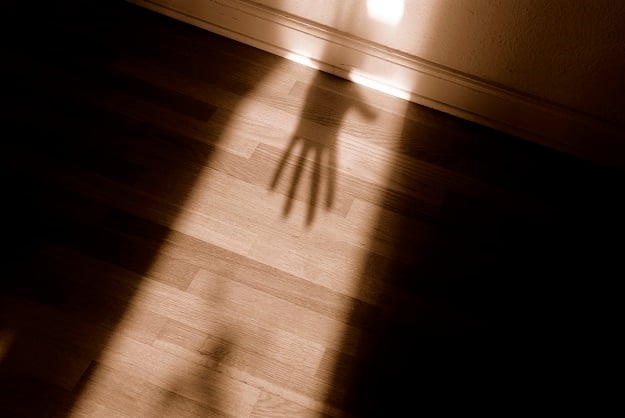
With daily reports of gruesome killings, sexual violations and the rape of women and children, something must be done to ensure the protection of women and children and what better way than to stop justifying and normalising every shred of patriarchy, writes Irene Charnley.
In this comment about her novel The Left Hand of Darkness, published 53 years ago, Ursula K le Guin, may have been imagining the joys of a gender-equal world not as a work of science fiction, but to remind us of the future that could be ours to enjoy.
It is a pity that the future that could be ours is imagined through bills, legislations and laws such as the latest Criminal and Related Matters Amendment Bill, Domestic Violence Amendment Bill and the Criminal Law (Sexual Offences and Related Matters) Amendment Act Amendment Bill approved recently by President Cyril Ramaphosa.
Speaking during the State of the Nation address (SONA) at the Cape Town City Hall, on Thursday, President Ramaphosa said implementing the three new bills would go a long way to ensuring successful prosecutions and protecting survivors. In addition to strengthening the criminal justice system, he said much progress had been made in clearing up the DNA backlog processing.
"The implementation of this legislation will definitely go a long way to ensuring that cases are successfully prosecuted, that survivors of gender-based violence are protected and that there are more effective deterrents in place," he said.
READ | Tembisa shooting: Violent acts perpetrated by cops rooted in on-the-job issues - Popcru
The recent shooting of a nurse by an on-duty police officer who then turned the gun on himself at Tembisa Hospital highlighted the scourge of GBV in general and the ever presence of intimate partner violence in particular and places a great obligation on law enforcement agencies to use laws legal avenues to punish the perpetrators.
Why we need GBV laws
While we welcome the approval of legislation aimed at strengthening efforts to end gender-based violence by closing gaps which have allowed perpetrators of gender-based violence and femicide (GBVF) to take advantage of legal loopholes to evade justice, we need ask ourselves, why do we need laws instead of simply being committed to the greater good of a gender-equal world?
History books remind us that the establishment of a system of laws goes back to the ancient Mesopotamian culture that prospered long before the Bible was written or the civilisations of the Greeks or Romans flowered, as long ago as 2400 BCE.
Historians credit the Hammurabi's Code as the origin of written laws and a formal legal system. Hammurabi's Code was a collection of 282 laws inscribed on an upright stone pillar, containing many fundamental legal concepts we would recognise today in our modern society.
In the preface, Hammurabi wrote that he created the laws "to bring about the rule of righteousness in the land, to destroy the wicked and the evil-doers; so that the strong should not harm the weak."
Drastic change in social attitudes
In these modern times, we also need the laws to protect women's general safety, and ensure our rights as citizens against abuses by other people, indeed "the wicked and the evil-doers; so that the strong should not harm the weak."
Of course, we need the laws to help provide for women's general safety, but more than that, we need a drastic change in social attitudes, particularly the patriarchy – a system in which men hold the majority of the power and in which masculinity is glorified, leading men to predominantly perpetrate violence against women, children and persons with disabilities.
As British philosopher John Stuart Mills wrote more than 200 years ago in his "harm principle", we need laws because "an action which results in doing harm to another is not only wrong, but wrong enough that the state can intervene to prevent that harm from occurring."
READ | Irene Charnley | Despite legislation and policy, rape is still happening
Without basic "harm principle" laws, there is the danger that our society and nation can degenerate into despotism, where the strong and violent rule over the weak and nonviolent.
We are happy with the victim-centred focus of the laws, which include expanding the list of people to be protected and further regulation of the granting and cancellation of bail for perpetrators.
We welcome the introduction of online applications for protection orders against acts of domestic violence, harsher penalties for those found guilty of GBV and the expansion of the scope of the National Register for Sex Offenders to include the particulars of all sex offenders and not only sex offenders against children and people who are mentally disabled.
'Second pandemic'
GBVF remains rampant in South Africa, making South Africa one of the most unsafe places for women, hence described as the "second pandemic," by President Ramaphosa.
According to statistics, a woman is murdered every three hours in South Africa. The World Health Organisation has reported that South Africa's GBVF statistics stands at 12.1 per 100,000 women, five times higher than the global average of 2.6 women per 100,000.
Also, Statistics South Africa has reported that 138 women per 100,000 were raped in the country, the highest rate in the world.
With daily reports of gruesome killings, sexual violations and the rape of women and children, something must be done to ensure the protection of women and children and what better way than to stop justifying and normalising every shred of patriarchy.
I do not think that there is anyone who can contest the fact that most abuses against women are the direct result of patriarchy, described by Alda Facio, an international expert in gender and human rights as "a form of mental, social, spiritual, economic and political organisation/structuring of society produced by the gradual institutionalisation of sex-based political relations created, maintained and reinforced by different institutions linked closely together to achieve consensus on the lesser value of women and their role."
Patriarchy is not only an explicit ongoing effort by men to dominate women, but a long-standing system, to try to convince women that things are the way they are because they have to be that way, that they have always been that way.
READ | OPINION | Bhekisisa Mncube: Gender-Based Violence - We need to break the silence
Unfortunately, patriarchal mind-sets are responsible for GBVF, and it is our duty to point at ways out of this unjust power system in order to save women and society from its continuing influence.
Of course, patriarchy is not and cannot be the sole reason for domestic violence. There are other factors and circumstances which can be blamed for GBVF. However, it is a valid argument to suggest that the quest for male power and dominance, is responsible for the distorted belief that men have a right to control their partners through violence or fear of violence.
When we, as the International Women's Forum South Africa, contributed to the strengthening of the new GBVF legislation, we were adamant and remain adamant that our nation must confront patriarchy and dismantle it.
As the South African chapter of the International Women's Forum, a global organisation of over 7 500 pre-eminent women of significant and diverse achievement from across 36 nations and six continents, our members know that we cannot dismantle patriarchy as long as some people remain in denial about its impact on our lives.
We must come to the collective realisation that all of us have a part to play in confronting and eliminating patriarchy in our society.
Patriarchy-infused culture
It is a pity that the family plays an important role in creating a hierarchical system that mirrors patriarchal norms in some cultures.
For example, it is well-known that in some families, women are socialised to embrace the so-called superiority of the male species. And women are told that the success of their marriage lies in their sole efforts.
Such cultural norms entrench patriarchy and serve not only to keep women silent, but also to keep them vulnerable. Therefore a patriarchy-infused culture makes the man superior, the all-in-all, to simply be worshipped.
It is no secret that boys are encouraged to embrace some form of supremacy in some cultures and girls are subtly made aware of their subjugation. These gender stereotypes put women at a disadvantageous position and make them vulnerable to violence and other kinds of discriminations and injustices.
Next to patriarchy is sexism, the assumed belief that the world is as it is according to men, thus giving the male species the licence to condone violence against women and making it difficult for women to protect themselves from violence.
As President Ramaphosa said in his 2022 SONA address "the fight against gender-based violence will never be won unless as a society we mobilise all formations and all citizens behind a sustained programme of social action,"
I agree with the President. All of us must ask ourselves: Am I enabling patriarchy in my daily life, at work and at home?
Let it sink in that we can have bills, legislation and laws but unless "men and women are completely and genuinely equal in their social roles, equal legally and economically, equal in freedom, in responsibility and in self-esteem," the world will never be a better, secure and peaceful place.
- Irene Charnley is a successful businesswoman and President of the International Women's Forum of South Africa.
To receive Opinions Weekly, sign up for the newsletter here.
*Want to respond to the columnist? Send your letter or article to opinions@news24.com with your name and town or province. You are welcome to also send a profile picture. We encourage a diversity of voices and views in our readers' submissions and reserve the right not to publish any and all submissions received.
Disclaimer: News24 encourages freedom of speech and the expression of diverse views. The views of columnists published on News24 are therefore their own and do not necessarily represent the views of News24.




 Publications
Publications
 Partners
Partners






















